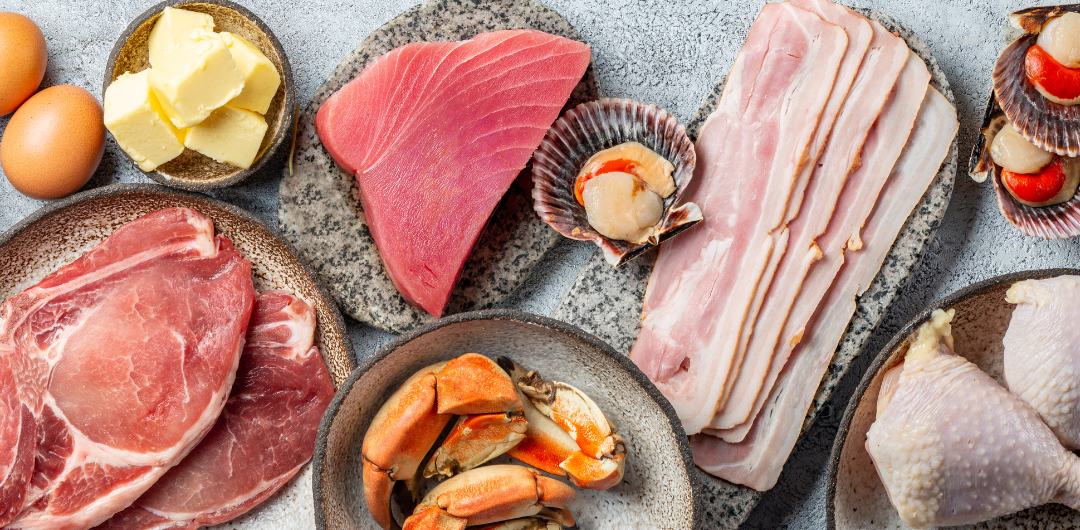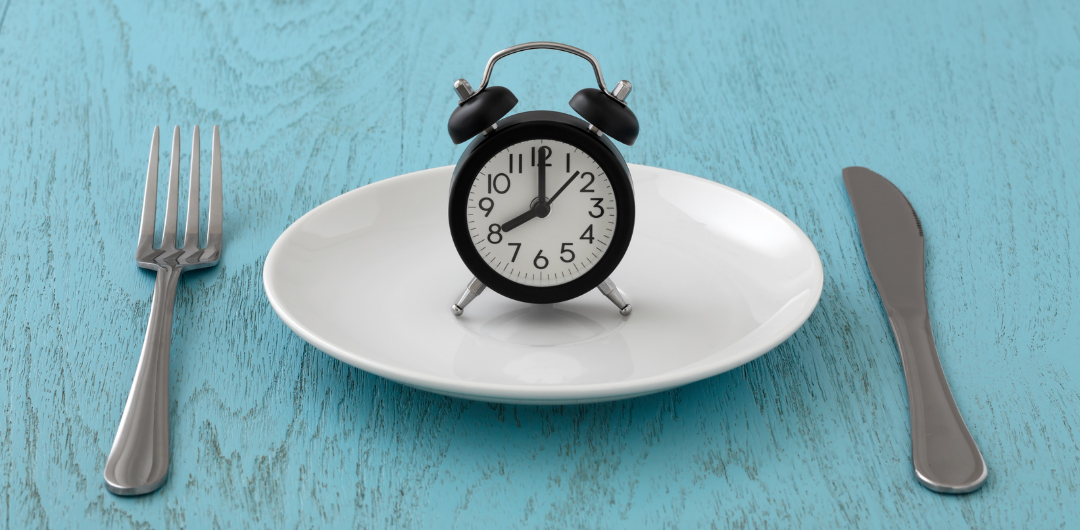
The Ultimate Carnivore Diet Meal Plan: Fueling Your Workouts with Tactical Precision
The consumption of solely animal-based foods in the Carnivore Diet has been increasingly favoured in recent times.
The Carnivore Diet requires you to eat exclusively animal-based foods while eliminating all plant-based meal options.
This method may appear drastic, but it boasts numerous benefits, such as better digestion, reduced inflammation, and enhanced overall well-being.
Athletes and fitness enthusiasts can gain a tactical advantage during workouts through the Carnivore Diet.
A complete guide to creating your perfect meal plan for the Carnivore Diet awaits in this blog post. Here, we cover successful meal planning tips and tricks, plus sample meal plans tailor-fit for varying workout types.
The Science of Carnivore Diet
Consuming solely animal products and avoiding all plant-based foods is the premise of the contentious carnivore diet.
There are mixed reviews regarding the carnivore diet, as supporters claim health benefits, while critics express concerns about the potential risks.
The Carnivore Diet traces its roots to the Paleolithic era when meat consumption was prevalent among our ancestors.
Humans added more plant-based foods to their diet as time passed, but some argue our bodies can't handle them in large quantities.
The Carnivore Diet solely emphasises animal-based foods for this reason.

Nutritional Content of Animal Foods
High-quality protein, essential fats and fatty acids, and important vitamins and minerals are abundant in animal-based foods.
Besides, our bodies can digest and absorb animal-based foods more easily than plant-based foods.
The Role of Plant Foods in the Carnivore Diet
To increase flavour and micronutrients, some supporters of the Carnivore Diet recommend including small portions of low-carb veggies and spices.
Animal-Based Diet Digested: Pros and Cons
Carnivore diets, which involve consuming solely animal products, are becoming more mainstream.
Consuming solely animal-derived products is what this eating style involves, such as meat, fish, eggs, and dairy.
While some tout the diet's health benefits, others question its potential dangers.
Pros of a Carnivore Diet
-
Weight Loss: A carnivorous diet has been reported by many to result in substantial weight reduction. One might reduce their calorie intake by feeling fuller and more satisfied with animal products.
-
Improved Mental Clarity: Inflammatory foods eliminated or certain nutrients in animal products could be the reasons behind the reports of improved mental clarity and focus by some advocates of the carnivore diet.
-
Reduced Inflammation: Injury or infection typically produces a natural inflammatory response, but long-term inflammation can cause issues. In some studies, removing plant-based foods that may activate the immune system can reduce inflammation on a carnivore diet.
-
Increased Muscle Mass: Muscle mass needs protein abundant in animal products. Some athletes and bodybuilders implement a carnivore diet to assist with muscle growth.
-
Potential for Improved Digestive Health: Many people report improved digestive health on a carnivore diet. The absence of plant-based foods that are easy to digest or lack anti-nutrients could be causing this.
Cons of a Carnivore Diet
-
Nutrient Deficiencies: A diet heavy in carnivorous options may result in lower levels of fibre, vitamin C, and certain minerals. Getting enough of these nutrients through supplements or animal-based sources is essential.
-
Increased Risk of Heart Disease: Heart disease risk can be elevated by consuming animal products high in saturated fat and cholesterol. Although cholesterol levels might improve for some, others may experience adverse effects when following a carnivore diet.
-
Potential for Kidney Damage: A high-protein diet can stress the kidneys, causing potential damage over time. Monitoring kidney function is crucial in a carnivore diet due to the high protein intake.
-
Environmental Impact: A carnivore diet has a significant environmental impact. The emissions of greenhouse gases and deforestation are heavily attributed to animal agriculture. Adopting a diet based on plants can considerably decrease your carbon footprint.
Support and opposition to a carnivore diet are commonly found in nutrition. Numerous individuals may experience significant health advantages from the carnivore diet, while others might face adverse effects.
Considering potential risks and benefits and consulting with a healthcare professional is vital before making significant dietary changes.
The ideal diet should meet your nutritional requirements, match your lifestyle, and improve your overall health and well-being.

Building Your Ultimate Carnivore Diet Meal Plan
A carnivore diet plan must cater to nutritional needs, so creating one is vital for success.
This section will explore the critical considerations for building your ultimate carnivore diet meal plan.
Determining Your Nutritional Needs
Prior to meal planning, knowing your nutritional needs is imperative. Consider these critical factors:
-
Macronutrient ratios: The protein and fat level in the carnivore diet is usually high, while carbohydrates are low. Your goals, activity level, and body composition all impact specific ratios.
-
Micronutrient requirements: Ensure essential vitamin and mineral intake on a carnivore diet. This may require incorporating organ meats or taking supplements.
Selecting the Right Animal Foods
Not all animal foods are equally nutritious.
However, choosing high-quality protein sources and essential fats is critical to get your desired nutrients.
Here are some examples of animal-based foods to consider.
-
Beef: Get your protein, iron, and vitamin B12 from beef.
-
Pork: A source of protein, vitamin B12, and zinc.
-
Chicken: A lean source of protein and vitamin B12.
-
Fish: Omega-3 fatty acids, vitamin D, and selenium can be obtained from fish.
-
Eggs: A source of protein and essential fats.
-
Dairy products: A source of calcium, vitamin D, and probiotics (if choosing fermented options).
Incorporating Plant Foods in Your Meal Plan
The carnivore diet may exclude most plant-based foods, but low-carb vegetables and spices can be included by some proponents to enhance flavour and provide additional micronutrients.
Here are some options to consider:
-
Broccoli: Get your vitamins and fibre from broccoli, a low-carb vegetable packed with nutrients like vitamin C and folate.
-
Cauliflower: Vitamin C, K, and fibre make cauliflower a nutritious low-carb vegetable option.
-
Cabbage: Looking for a carb-friendly vegetable? Choose cabbage. It's also high in fibre and vitamin C.
-
Spinach: Spinach contains a wealth of iron, vitamin K, and folate, making it a low-carb leafy green.
-
Spices: Adding herbs and spices to your meals can provide additional flavour and potential health benefits. Opt for spices like turmeric, ginger, and garlic when cooking your meals!
A carnivore meal plan can be developed by comprehending your nutritional needs, picking quality animal foods, and incorporating low-carb veggies and spices.
You can meet your objectives and take care of your well-being by planning a meal plan intelligently.
Meal Planning for Different Workouts
Maximising your workout performance requires meal planning, regardless of your fitness objectives.
Your body's optimum workout performance relies significantly on well-planned nutrition. In addition, various workouts demand varying nutritional requirements.
Achieve your fitness goals by exploring various meal-planning options for different workouts in this informative blog post.
Weightlifting and Bodybuilding
If you're serious about weightlifting or bodybuilding, you're well aware that a proper diet is essential for muscle growth and achieving your fitness goals.
Achieving your fitness goals requires a high-protein meal plan for muscle repair and growth.
Protein is not the only important element for weightlifters and bodybuilders; consuming complex carbohydrates and healthy fats aids muscle recovery and provides sustained energy during intense lifting sessions.
-
Protein: Shoot for consuming at least 1 gram of protein daily for every pound of body weight. To get enough protein, include chicken, beef, pork, fish, eggs, and dairy products.
-
Carbohydrates: Brown rice, sweet potatoes, and quinoa deliver the steady energy needed for demanding weightlifting workouts due to complex carbohydrates.
-
Fats: Adding avocados, nuts, and olive oil into your diet can reduce inflammation and aid muscle recovery. You can include these in your meal plan; remember to control caloric intake.
Endurance and Cardiovascular Training
Endurance and cardiovascular training are integral components of any fitness routine. Training for a marathon or improving your fitness requires proper nutrition to support your efforts.
While carbohydrates are often considered the primary fuel source for endurance athletes, the carnivore diet uniquely fuels your workouts with tactical precision.
Here are some key details on how to optimise your endurance and cardiovascular training with the carnivore diet:
-
Carbohydrates: Glycogen stores, necessary for preventing fatigue in endurance athletes, require carbohydrates in their maintenance. Though low in carbohydrates, the carnivore diet can still generate enough glucose to support endurance activities via gluconeogenesis.
-
Lean Protein: Muscle tissue can be reconstructed and damaged cells repaired by consuming lean proteins like chicken or fish. Therefore, consuming lean proteins such as chicken and fish is crucial for muscle recovery and avoiding breakdown during extensive exercise.
-
Leafy Greens and Fruits: These provide essential vitamins and antioxidants to support overall health. Even though these are not your primary fuel source on a carnivore diet, incorporating them into your meals can provide essential nutrients for optimal performance and recovery.
Recovery and Rest Days
The significance of pushing ourselves to the limit and training hard is often emphasised when talking about fitness and exercise.
Although vital, they form only one aspect of the equation.
Equally critical to achieving our fitness goals is the process of recovery and rest.
Proper recovery strategies can prevent injury and muscle soreness while enhancing performance.
Recovery is as vital as training hard, so this article discusses effective strategies like hydration, protein consumption, and healthy fats.
-
Adequate Hydration: Muscle soreness can worsen due to dehydration, decreasing blood flow and raising the possibility of injury. One should maintain adequate hydration by drinking plenty of water throughout the day, especially during and after exercising.
-
Protein Consumption: The body needs enough protein for muscles to repair and grow. Eating lean meats, eggs, and dairy products and aiming to consume 1-1.5 grams of protein per pound of bodyweight daily can help support muscle repair and growth.
-
Healthy Fats: These can also contribute to a healthy inflammatory response and aid in it. The promotion of healing and inflammation reduction has been scientifically proven with Omega-3 fatty acids. Include salmon, flaxseeds, chia seeds, and walnuts in your diet for a good source of omega-3s.

Sample Meal Plans
Whether you're a novice or a pro athlete, achieving fitness goals requires meal planning. What foods are recommended?
These beginner, intermediate and advanced meal plan samples are available for you to commence your fitness journey.
Beginner-Level Meal Plan
-
Breakfast: Oatmeal with almond milk, banana, and honey
-
Snack: Apple slices with peanut butter
-
Lunch: Grilled chicken breast with roasted sweet potatoes and broccoli
-
Snack: Greek yogurt with berries
-
Dinner: Baked salmon with quinoa and green beans
Intermediate Level Meal Plan
-
Breakfast: Egg white omelette with spinach and mushrooms, whole-grain toast
-
Snack: Cottage cheese with pineapple
-
Lunch: Turkey w/ chilli with brown rice and mixed veggies
-
Snack: Whole-grain crackers with hummus
-
Dinner: Grilled steak with roasted asparagus and quinoa salad
Advanced Level Meal Plan
-
Breakfast: Protein smoothie with almond milk, spinach, berries, and chia seeds
-
Snack: Hard-boiled eggs with sliced veggies
-
Lunch: Grilled shrimp with quinoa and roasted veggies
-
Snack: Protein bar
-
Dinner: Lean-Beef burger with sweet potato fries and mixed greens salad
Please note that these meal plans are recommendations, and you must tailor them to suit your specific preferences and dietary requirements.
Ensure your meals offer a mix of nutrients, including lean proteins, complex carbohydrates, healthy fats, fruits and veggies.
Effective meal planning is undeniably significant in reaching your fitness goals. Customise your meal plans with the above samples as a starting point to fit your specific needs and goals.
Tips for Successful Carnivore Diet Meal Planning

Effective meal planning is crucial when following the carnivore diet to ensure your body receives all the necessary nutrients.
The carnivore diet solely comprises animal products. However, a carnivore diet doesn't mean bland food.
On the contrary, tasty meals can be achieved with some creativity and planning.
Here are some tips for successful carnivore diet meal planning:
Choose Quality Meat
When meal planning, make sure to prioritise high-quality meats that were raised on pasture and fed grass.
Meats raised on pasture and grass tend to be richer in nutrients and with fewer harmful additives and chemicals than those conventionally raised.
Choose quality meats like pasture-raised, grass-fed beef, free-range poultry, and wild-caught fish to ensure a healthier meal.
Incorporate Variety
Don't limit yourself to just one type of meat on the carnivore diet - incorporating a variety is essential for nutrient diversity.
For example, incorporate meats like beef, chicken, pork, fish, and eggs for a good mix of proteins.
Consider adding organ meats like liver and heart to your diet for nutrient variety.
Add Healthy Fats
Healthy fats are essential in your meals to provide enough calories and energy. Healthy fats also support brain function, hormonal balance, and satiety.
Grass-fed butter, ghee, coconut oil, avocado, and fatty meat cuts are all excellent sources of healthy fats that can help to support brain function, hormonal balance, and satiety when incorporated into your meals.
It is vital to consume healthy fats to maintain energy levels as well.
Don't Forget About Vegetables
Although the carnivore diet emphasises meat, including some vegetables in your meals is still crucial.
To obtain crucial vitamins and minerals that meat may not have, it’s important to incorporate leafy greens, broccoli, and cauliflower into your diet.
Some carnivore dieters also include small amounts of low-carb fruits like berries and avocado.
Meal Prep
Preparing meals ahead of time guarantees that you always have nutritious carnivore options available.
Start the week by cooking meat in bulk and splitting it into small servings.
You can also prep simple sides like roasted vegetables or hard-boiled eggs.
Get Creative
While the carnivore diet restricts certain food groups, it also allows for ingenuity in meal planning. For example, try making meatballs or burgers with different meats and seasonings. Substitute bread or tortillas with lettuce leaves.
Switch up your cooking methods, including grilling, roasting, and slow cooking.
In conclusion, meal planning is essential for success on the carnivore diet. You can create healthy, delicious meals using quality meats, including various options, adding healthy fats, incorporating vegetables, prepping meals, and being creative.
Seeking advice from a healthcare professional beforehand is crucial before starting any new diet plan.
The Meat of the Matter: Final Thoughts on Carnivore Diet
Consider the carnivore diet for its benefits, including weight loss, enhanced mental clarity and increased energy levels.
This diet can provide crucial nutrients and enhance overall health by removing processed foods and concentrating on high-quality animal products.
Meal planning is crucial for success on the carnivore diet. Healthy, high-quality meats mixed with variety, healthy fats, a handful of vegetable options, meal prep, and creativity can generate meals that assist in achieving health and fitness objectives.
The carnivore diet requires meal planning as a critical first step. Incorporate the suggestions from this article to produce nutritious and tasty meals that complement your health and fitness agenda.
Also, having the correct gear is imperative for a successful fitness journey. Check out EVATAC for quality gear, accessories, and bags to support your fitness journey.
Stay on top of things and be prepared with their gear selection, like tactical backpacks, gym bags and more.
Fuel your gains with meaty goodness!







Leave a comment
This site is protected by hCaptcha and the hCaptcha Privacy Policy and Terms of Service apply.